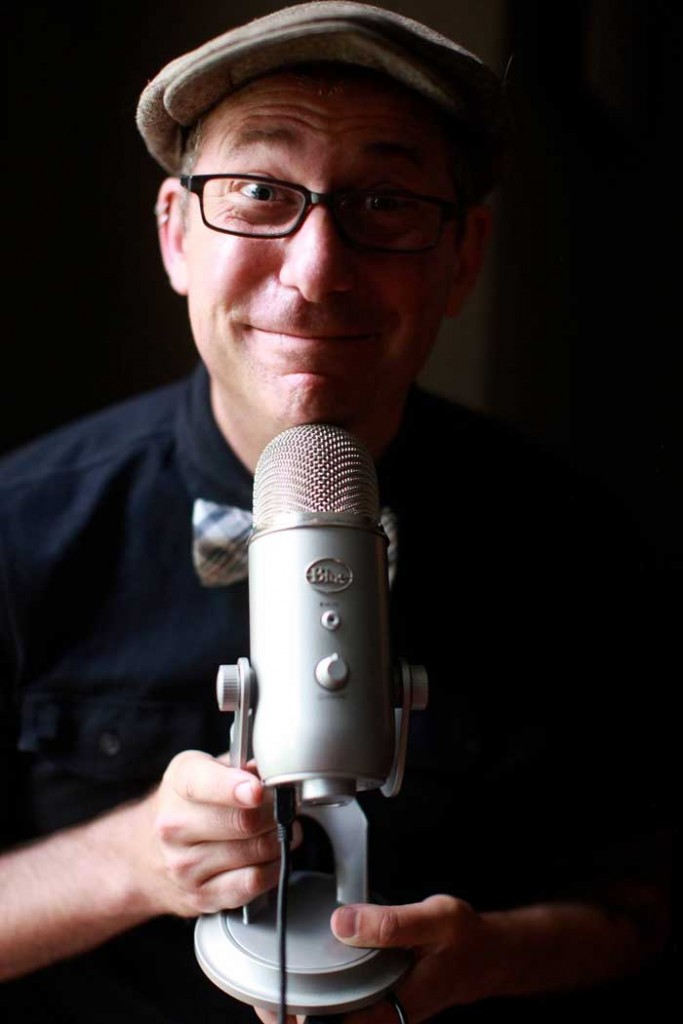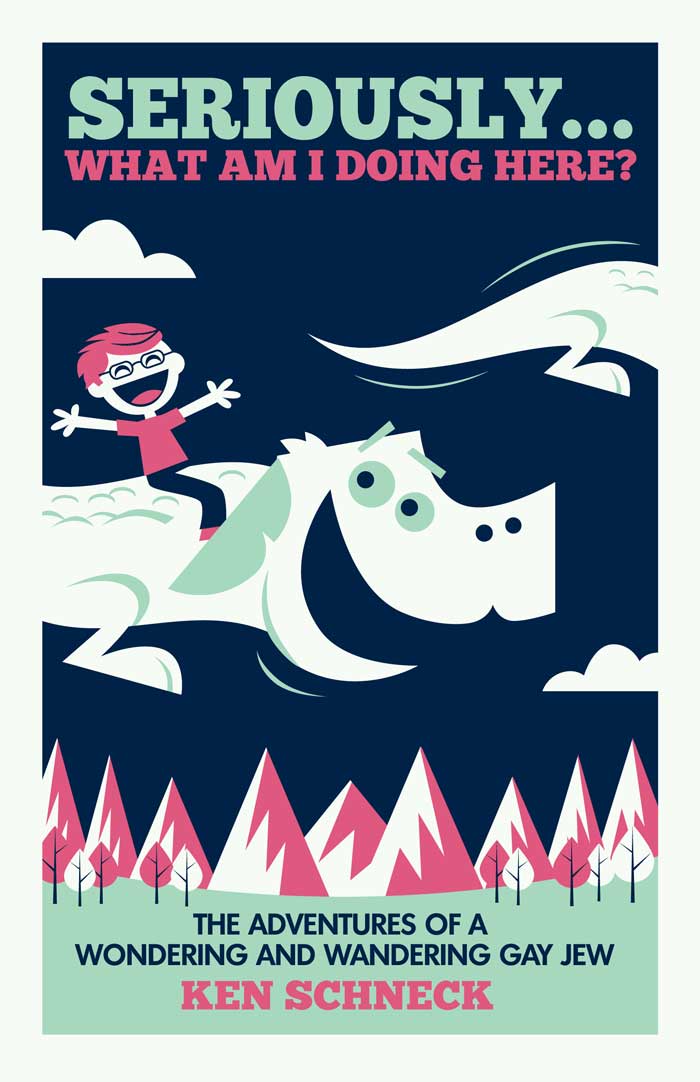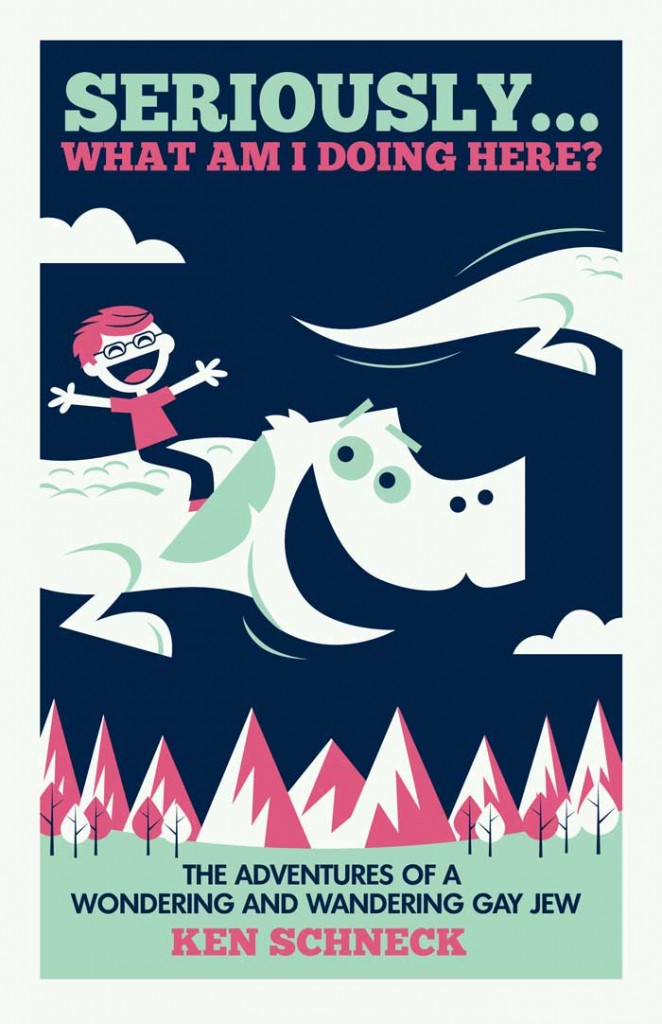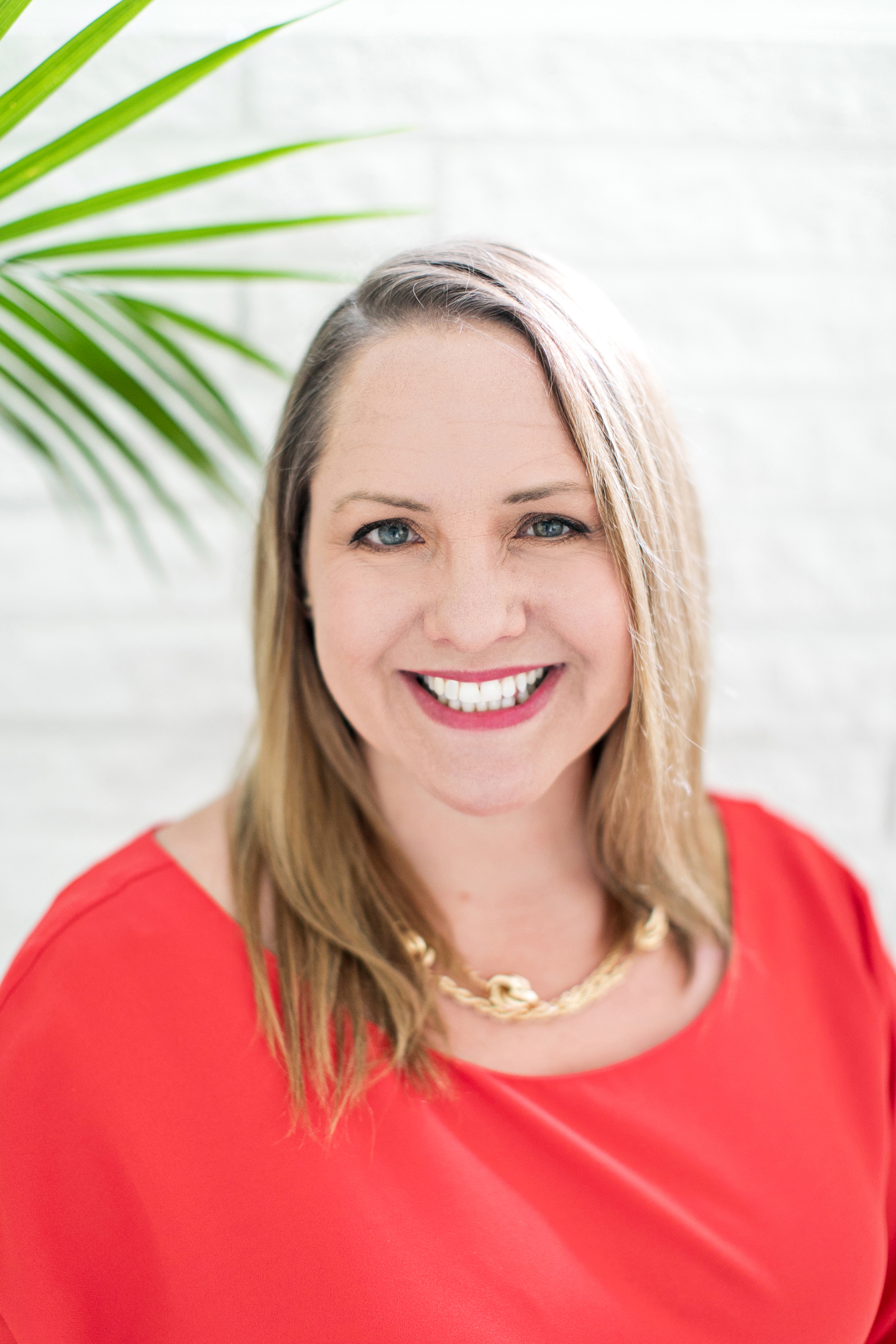I first met Ken Schneck, a professor and radio show host and producer, in 2010, when Equally Wed launched. He had me as a guest on his Cleveland-based show with an international audience, This Show is So Gay, and I don’t think I’ve ever laughed so hard with someone I had just met. His friendly nature combined with his sharp wit makes Schneck someone you want to sit by at dinner and invite to your dinner parties.

photo by Laura Wimbels
Schneck, an associate professor and the director of the Leadership in Higher Education Program at Baldwin Wallace University, has just published his first book, a travel-focused memoir titled Seriously…what am I doing here? The Adventures of a Wondering and Wandering Gay Jew (1984 Publishing). Reading “Seriously” is a lot like sitting down with Schneck over dinner and hearing all about his wild adventures around the world through his uniquely hilarious and heart-centered lens. I caught up with him to chat about his life along the way, writing while traveling, his podcast and his braveness to say “yes” to seemingly any adventure.
EW: How did your podcast get started?
KS: This Show is So Gay was born on July 4, 2008. I was sitting on the curb at the Independence Day Parade in Brattleboro, VT, and someone was handing out flyers for the local low-power radio station. As soon as that piece of paper hit my hand, I knew I wanted my own show and I wanted to call it “This Show is So Gay.” The original idea was to call up notable gay people and talk about current events, but it quickly became clear that the strength and authenticity of the show was rooted in the exploration of how individuals use their voice in their own unique way to make a difference in the world. Nine years and 402 episodes later and that’s still the core of the show.
And you do this in your spare time of being a professor?
There are a lot of people in my life who see my roster of projects, pull me aside, and hilariously ask in a truly concerned way, “Are you really a professor? Or is that more of a screen name?” The reality is that I work my tail off to integrate my academic life into everything I do in the world. As a professor who teaches largely about leadership, race, social justice and community engagement, I rebel against the idea of “spare time” and see my classes, the radio show and my writing as being complementary efforts.
And then one day, you got invited to go to Uganda?
One of the guests on the radio show had received some national press for a letter she openly penned to President Obama about the “Kill the Gays” legislation that was quickly moving through the Ugandan legislative process. As she was describing the non-profit she runs in Uganda and the beauty of the country, I heard myself blurt out, “I want to go with you next time you return to Uganda.” She responded, “Then you will.” Within 48 hours, I had plane tickets to Uganda and that was it. That really was my first time saying yes to adventure and it set the stage for the way I now live my life.
Were you nervous about going to Uganda in terms of being gay? They’re pretty strict there about the whole gay thing. They have a death penalty for being gay, right? How did you feel while you were there? Did you talk about equality for the LGBTQ community or did you feel like you needed to be quiet to stay safe?
On the first of my two trips to Uganda, I was just plain petrified. I was with an unfamiliar group of Americans traveling to an unfamiliar country in an unfamiliar time. I had it in mind that I was going to be this incredible gay ambassador and initiate dialogue with Ugandans that would not only make them not execute gay people but elect them President. That idea left me as soon as debarked the plane and realized I knew nothing about the context and culture onto which I wanted to impose my own context and culture. I had one conversation with one woman and when she told me that being gay was “very bad,” I very quickly backed away from that very uncomfortable exchange. When I returned the second time two years later, I was much more determined to talk about the experience of being gay in Uganda and that determination overrode my fears and uncertainty. As folks will read in the book, the results of those conversations were heartbreaking, hilarious and humbling.
What sort of advice do you have for adventurous couples who want to honeymoon to a place where it’s a crime to be gay, let alone act on it with your partner?
Maybe don’t? I’m a huge fan of couples bonding during their honeymoon, starting their lives together as a married couple. There’s enough fear, uncertainty and trepidation in your new union that I’m recommending against adding the part where your union is a crime in the place where you chose to celebrate. But if the gravitational pull is drawing you to one of these countries, you need to do your research, have the United States Embassy on speed-dial, link up with a non-profit/NGO that has an established presence in that locale, and be ever-vigilant.
And then when you got back, your marriage disintegrated? That must have been devastating. How long were you married for?
My ex-husband and I started dating in our mid-twenties and were together for almost a decade. He was the constant of the majority of my life and, without question, my very best friend. When that marriage ended epically, I felt broken and adrift. Everything around me felt blurry and I was struggling to grasp on to something—anything—to serve as an anchor. All I could cling to in that (very blurry) storm was the idea that I needed to throw myself into adventures in order to find myself again.
You kept a detailed journal on your travels. Was that easy or hard? What recommendations do you have to people who aren’t writers but want to journal about their travels?
Journaling is super easy for me because journals have a specific purpose in my life. I’m not one of those people who journals every night to feel centered. It’s not part of my practice, except when I am in an unfamiliar place and I need a friend. That very first night in Uganda, all I kept thinking was, “Seriously, what am I doing here?!?” But it wasn’t rhetorical or the name of a great book. I really needed an answer and the only place I was able to find it was in that space between my pen and the paper. Everyone is a writer if you have thoughts, some ink (or graphite) and some paper. The trick is to be as authentic as possible. Don’t curate your image or hold back on providing the most full context of everything going on around you and in your head. A journal is not a diary and it’s not an itinerary of what you did on a given day. Instead, use it as your megaphone to take a picture—in words—of the shiny building in front of you and how the lens of your life experience affects your perception of the building. Don’t hold back. Don’t write what you think people will want to read. And people will then want to read it.
Tell me about the charity ride you did to raise money to find a cure for HIV/AIDS. How’d you get involved in that? What was the experience like?
After my divorce, I sought the assistance of a therapist. She made me promise to do one thing that I previously wouldn’t do because my ex-husband wanted me to do it. That list ended up being taking a Bikram yoga class, learning to drive stick shift, and riding my bike more—or, at all. One day, I received an email letting me know there were spots on an upcoming bike ride and I made the decision in my head to fulfill my promise to the therapist by doing this ride no matter where was going to take place. When I make a promise in my head, I am in it to win it. I opened the email and learned that the ride was from Montreal to Portland, Maine. 450 miles over 5 days. The most I had ever pedaled in my life was 30 miles, and I needed many days to recover from even that. But there I was, not really having trained, sitting on a bike in Montreal, just a few months after my divorce. It was equal parts surreal, comical, tragic, painful, and affirming. And the reader will come along with me for every inch of that journey.
What’s your advice on courage and saying yes to opportunities, such as “Yes, I do want to go to Uganda with you!” and “Yes, I would like to cycle umpteen miles for charity”?
One man’s courage is Ken Schneck’s supreme foolhardiness. But that’s not a bad thing. I never go into an experience thinking I am going to be 100 percent successful. I know that I’m going to fall down at some point, whether I crash my bike, or crumple emotionally at a hippie healing retreat in California, or buckle under the weight of an enormous backpack in the back country of the Colorado Rocky Mountains. The courage comes from knowing that I will get back up again. Some people set out to learn a lesson, a very “one-and-done” style of approaching the world. As the reader will witness, I’m not that guy. I need to learn the same lesson at least three times, and probably need it repeated it to me a fourth. I might even remember it on the fifth try. If I don’t say yes to opportunities, I won’t meet people I never in my life would have met, seen sights I never would have seen, and paused in ways I never would have paused. Don’t get me wrong: I can talk myself out of things better than anyone, but that one syllable of “yes” crosses the finish line before any excuse has time to form. So I take a deep breath, write about it in my journal, and just go with it.
You’ve accomplished so much. What’s next for you?
Next season on Ken Schneck: more teaching, more podcasting, more troublemaking and, most definitely, more writing. When I was sitting on the Cerro de la Cruz (“Hill of the Cross”) in Guatemala last May overlooking the beautiful of Antigua and ignoring the ginormous cross that felt like it was chastising my gay, Jewish presence, I started jotting some thoughts down. Suddenly the pen wouldn’t stop and I had the first 40 pages of my second book. I still want to throw myself into new adventures and lay my soul bare on paper all throughout, but this time, I want to do it to explore the idea of self-forgiveness. There’s a lot of writing out there on how to forgive other people but not a ton on how to forgive yourself.
I’ve messed up so colossally in my life (see: Divorce, Ken’s) and I want to begin a journey towards some semblance of self-forgiveness. But I’m still me, so the only way I know how to do that is to find myself in new and unfamiliar situations with new and unfamiliar people. The hope is that new adventures will result in new and unfamiliar feelings of forgiveness.
How can our readers listen to your show?
You can most definitely head on over to ThisShowIsSoGay.com to download the latest episodes or do the same on iTunes. We’re also on a few dozen terrestrial stations across the country, so check the listings on our site to see if we’re playing in a diner or rest stop near you!
Click here to purchase Seriously…what am I doing here? The Adventures of a Wondering and Wandering Gay Jew (1984 Publishing).


































